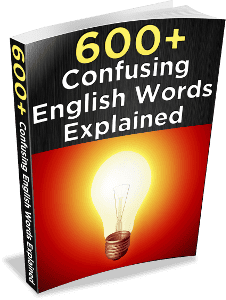

The English words overview, oversight, and overlook seem very similar – but they actually have very different meanings! Learn the difference between these confusing words in English with definitions and examples.
OVERVIEW (n.)
An overview is a quick summary:
“Before I start my presentation, let me give you an overview of the main points.”
This means you will give some general information without getting into the more complex details.
OVERSIGHT (n.)
A mistake when you fail to notice something.
“In the July issue of the magazine, we reported that the United States has 60 states, not 50. That was a major oversight.”
In other words, the people responsible for checking the facts of the article and making sure it was accurate failed to notice that there was a mistake.
The word “oversight” can also be used to mean “supervision.” It is the noun form of the verb “oversee,” which means “to supervise”:
“A new government agency was created to supervise public schools. Hopefully this oversight will help improve the country’s educational system.
OVERLOOK (v.)
Differently from “oversee,” which means “to supervise,” the verb “overlook” means “to disregard or ignore; not to take into account.” It is often used when you decide to ignore an error or a negative aspect:
An interviewer saying to a job candidate:
“I’m willing to overlook your lack of a college degree if you have relevant experience in the field.”
“Overlook” also has a more literal meaning – to have a view from a high place:
“My new apartment overlooks the ocean.”
Learn more confusing words: affect and effect!










